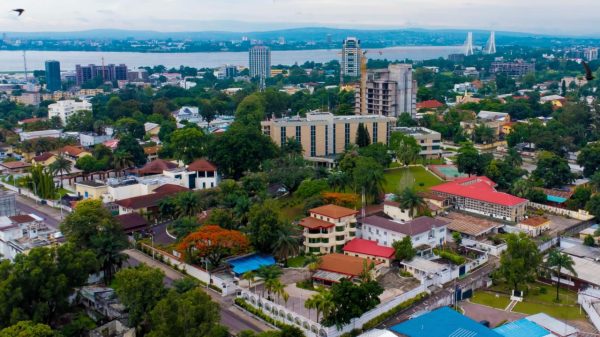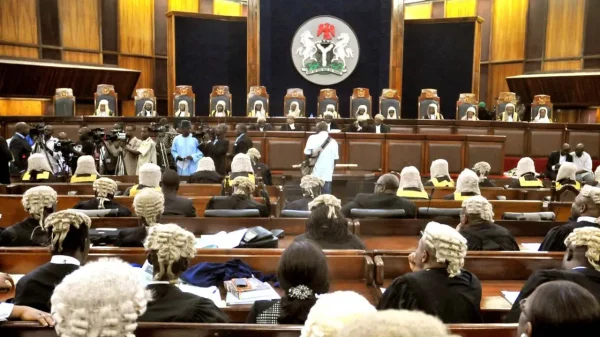Changing your name in Nigeria is a legal process that requires adherence to specific procedures to ensure governmental and financial institutions recognize the change.
Whether you’re seeking a name change due to personal reasons, marriage, divorce, or other circumstances, following the established legal steps is essential to avoid complications. This comprehensive guide outlines the process of legally changing your name in Nigeria, detailing each step and providing insights into the requirements and implications.
1. Understanding the Legal Framework
In Nigeria, the process of changing one’s name is primarily governed by customary practices and judicial precedents. The Supreme Court has clarified that while individuals have the right to change their names, such changes must be effected through proper legal channels to be deemed valid citeturn0search1. This ensures that the new name is recognized for all legal purposes, including identification documents, bank records, and other official records.

2. Eligibility Criteria
Before initiating a name change, it’s important to determine if you meet the eligibility requirements:
- Age Requirement: Individuals must be above 18 years of age to apply for a name change. Minors can only have their names changed if a parent or legal guardian initiates the process on their behalf
- Legal Standing: Applicants should not be bankrupt or have any pending financial or criminal liabilities.
- Citizenship: The applicant must be a Nigerian citizen.
3. Step-by-Step Process to Legally Change Your Name
i. Swear an Affidavit of Change of Name
Begin by swearing an affidavit in a High Court of Nigeria, stating your intention to change your name. An affidavit is a sworn statement made under oath before an authorized officer of the court. This document should clearly state your current name, the new name you wish to adopt, and the reasons for the change
ii. Execute a Deed Poll
A Deed Poll is a legal document that formally records your intention to abandon your old name and adopt a new one. To execute a Deed Poll:
- Draft the Deed Poll document, including your old name, new name, and a declaration that you will exclusively use the new name.
- Sign the document in the presence of a witness, who must also sign.
- Have the Deed Poll stamped at the Stamp Duty Office to authenticate it
iii. Publish the Change of Name in a National Newspaper
To inform the public of your new name, publish a notice in at least one recognized national newspaper. The publication should include your former name, your new name, and a statement declaring that you have formally changed your name. This step serves as public notice and is crucial for transparency citeturn0search2.
iv. Lodge the Deed Poll with the Civil Registry
Submit the stamped Deed Poll, along with the affidavit and newspaper publication, to the Nigerian Civil Registry. The registry will publish the change in the official gazette, thereby formalizing the name change. This step ensures that your new name is recognized by all governmental agencies
v. Update Personal Records and Identification Documents
After completing the legal formalities, update your personal records to reflect your new name. This includes:
- Bank Accounts: Present the affidavit, Deed Poll, and newspaper publication to your bank to update your account details.
- National Identification: Update your National Identity Card, Voter’s Card, and other forms of identification by providing the necessary documents.
- Academic Certificates: Contact the issuing institutions to inquire about their procedures for updating records. Some institutions may require additional documentation or processes.
- Passport: To update your Nigerian passport, submit an application to the Nigeria Immigration Service, including:
i. An application letter stating the reason for the change.
ii. Sworn affidavit of change of name.
iii. Copy of the newspaper publication.
iv. Other supporting documents, such as marriage or divorce certificates, if applicable
Special Considerations
- Marriage and Divorce: Name changes due to marriage or divorce follow similar procedures but may require additional documents:
- Marriage: Marriage certificate or declaration of marriage.
- Divorce: Decree Nisi and Decree Absolute or declaration of divorce, along with evidence of maiden name
- Minors: For individuals under 18, a parent or legal guardian must initiate the name change process on their behalf
- Online Services: With advancements in technology, some platforms offer online services to facilitate the affidavit process. Ensure that any online service used is recognized and authorized to provide such services
Potential Challenges and How to Address Them
- Institutional Acceptance: Some institutions may have specific requirements or may be slow to update records. It’s advisable to contact each institution directly to understand their procedures and provide all requested documentation promptly.
- Consistency Across Documents: Ensure that all your documents reflect the same name to avoid discrepancies. Keep copies of all documents related to the name change process to present when necessary.
- Legal Recognition: While the process is straightforward, failure to complete any step may result in the new name not being legally
Subscribe to our Newsletter
Stay updated with the latest trends in African Pop Culture!























